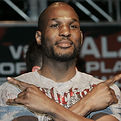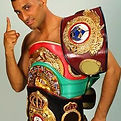BoxingAcademyOnline.com
Muhammad Ali
When you hear the name Muhammad Ali, what comes to mind is more than just a boxer — it's a symbol of greatness, courage, and resilience. Ali transformed the sport of boxing and used his voice to fight for justice, faith, and humanity. This in-depth article explores his incredible journey, from humble beginnings to becoming “The Greatest
Early Life and Beginnings :
Cassius Marcellus Clay Jr. was born on January 17, 1942, in Louisville, Kentucky. Growing up in the racially segregated South, Ali’s early life wasn’t easy. His boxing journey began at age 12 after his bicycle was stolen, and a police officer suggested he learn how to fight. Young Clay quickly showed promise with his unmatched speed and footwork, winning numerous amateur bouts and gaining local fame.
Olympic Gold at Rome 1960 :
At 18, Ali represented the USA at the 1960 Rome Olympics, where he won the gold medal in the light heavyweight category. It was his first major step on the global stage. Upon returning home, he turned professional and immediately gained attention for his brash confidence and poetic trash talk, including his famous line:
“Float like a butterfly, sting like a bee.”
Rise to Fame in Professional Boxing :
From 1960 to 1964, Ali built an undefeated record. His biggest breakthrough came when he shocked the world by defeating Sonny Liston to become the world heavyweight champion in 1964. At only 22, he was the youngest fighter to defeat a reigning champion and claim the belt.
Conversion to Islam and Name Change :
Shortly after becoming champion, Ali announced his conversion to Islam and changed his name from Cassius Clay to Muhammad Ali. His association with the Nation of Islam sparked controversy, but Ali stood firm in his beliefs, stating that “Cassius Clay was my slave name.” Later, he would follow Sunni Islam, further deepening his spiritual journey.
Draft Refusal and Boxing Ban :
In 1967, Muhammad Ali refused to be drafted into the U.S. military to fight in the Vietnam War, citing religious beliefs and opposition to the war. His stance cost him dearly:
-
He was stripped of his titles,
-
Banned from boxing for over three years,
-
And faced public backlash.
Yet, his defiance turned him into a civil rights hero and a symbol of conscientious objection.
Return to Boxing and “Fight of the Century:
Ali returned to the ring in 1970. In 1971, he faced Joe Frazier in what was dubbed the “Fight of the Century”. Though Ali lost on points after 15 grueling rounds, he regained respect as a warrior. He would later defeat Frazier in their second and third encounters, cementing one of the sport’s most iconic rivalries.
The Rumble in the Jungle: Ali vs. Foreman :
One of Muhammad Ali’s most legendary moments came in 1974, in Kinshasa, Zaire, where he faced the undefeated George Foreman in the “Rumble in the Jungle.” Using his famous “Rope-a-Dope” strategy, Ali absorbed punches, tired out his opponent, and knocked him out in the 8th round. The victory restored Ali as the heavyweight champion of the world and amazed the world with his tactical brilliance.
Thriller in Manila: Ali vs. Frazier III :
In 1975, Ali and Frazier fought a final epic battle in Manila, Philippines. The match, known as the “Thriller in Manila”, was fought in extreme heat and lasted 14 brutal rounds. Ali described it as “the closest thing to dying.” Frazier's corner stopped the fight, giving Ali a hard-earned victory and closing their legendary trilogy.
Retirement and Health Challenges :
Muhammad Ali officially retired in 1981 with a record of 56 wins (37 by knockout) and 5 losses. In the following years, he was diagnosed with Parkinson’s disease, likely due to years of head trauma. Despite the illness, Ali continued traveling the world as a peace ambassador, spreading messages of hope and unity.
Legacy and Impact :
Muhammad Ali passed away on June 3, 2016, but his legacy lives on:
-
He redefined boxing with intelligence and style.
-
He stood for racial equality, freedom of belief, and global peace.
-
He inspired athletes, activists, and everyday people across generations.
Ali wasn’t just a boxer — he was a movement, a voice for the voiceless, and a symbol of what it means to stand for your values, no matter the cost.
Conclusion:
The story of Muhammad Ali is not just about boxing. It's about a man who used his fists to fight in the ring and his voice to fight for justice. From Olympic gold to world championships, from court battles to moral victories, Ali lived his life on his terms. He truly was — and remains — “The Greatest.”
Contact
I'm always looking for new and exciting opportunities. Let's connect.
123-456-7890
Website Contents
The contents by the website
.jpg)
.jpg)


.webp)
%20(1).webp)